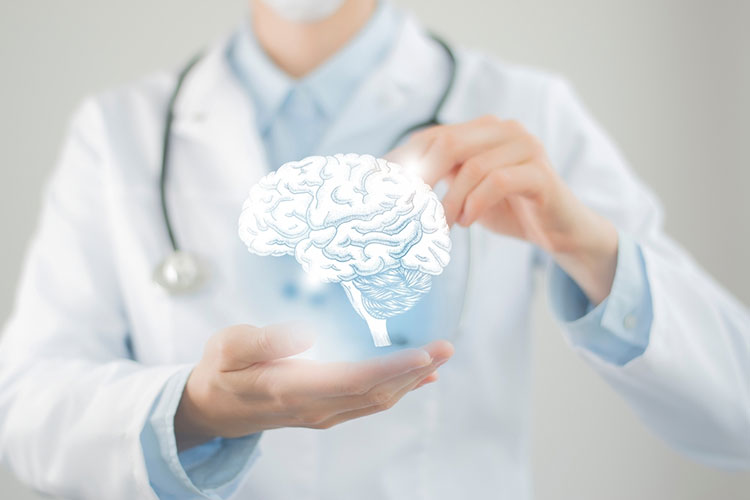Surely, following the keto diet, you have heard about the relationship between the ketogenic diet and epilepsy and several other diseases such as cancer and polycystic syndrome.
Many American researchers claim that ketogenic diet is useful in the treatment and prevention of some diseases, including epilepsy; Provided that it is basic and standard.
Epilepsy is a group of chronic neurological disorders that begin with mild and unpredictable seizures and have no fixed and clear cause.
This disease cannot be cured, but its signs and symptoms can be reduced and controlled by following some tips, including using a proper diet.
One of the suitable and recommended diets in the treatment of epilepsy is the ketogenic diet, which plays an important role in reducing the frequency of seizures caused by this disease.
In order to get more information about the effect of the ketogenic diet on epilepsy and the benefits of keto diet for the treatment of epilepsy, we suggest you not to miss today’s article in Dr. Kermani’s health magazine:
Can people with epilepsy follow a diet?
When visiting a nutritionist’s office, doctors always advise epilepsy patients to make simple but steady changes in their diet. Research has shown that using a proper and principled diet helps these people to have better physical conditions; so that they do not need to visit their doctor’s office frequently.

What is the effect of ketogenic diet on epilepsy?
Research has shown that diets are not just for weight loss and that what food we eat, how much, and even when, all affect how our brain works.
It is interesting to know that the ketogenic diet reduces the possibility of seizures in people with epilepsy!
In addition, in keto diet, a person gets help from fats (ketones) instead of sugars to provide energy, and this brings the person to the phase of ketosis and, consequently, the positive effect of the diet.
Also, in clinical trials conducted on these patients, evidence shows that even anti-epileptic drugs could not reduce the effects of seizures in these people.
But surprisingly, the ketogenic diet with its unique food plan greatly reduced the number of seizures in 50% of patients.
This diet improves the condition of patients by controlling the glycemic index and limiting the sources of carbohydrates in food.
To put it more simply, removing sugar and sweets in this diet makes the brain use fats for metabolism. As a result, blood glucose levels are lowered and seizure frequencies are also reduced.
Does the keto diet help prevent epilepsy?
As we said earlier, since its creation in the 1920s, the ketogenic diet has played a very important role in curbing seizures and nervous attacks and even preventing epilepsy.
In recent research, out of seven children with epilepsy, only one child exprienced a complete seizure; when he used a ketogenic diet!!
This diet helps with many epilepsies, including static myoclonic epilepsy (which occurs between the ages of 2 and 6 years, especially in girls, and is associated with seizures) and Lennox-Gastaut syndrome (a rare disease) and common childhood epilepsy that is highly resistant to drug treatment and difficult to control).

On the other hand, when adults and children’s body respond positively to the ketogenic diet, often under the supervision of a doctor, they can reduce the dose of their medications or even stop taking them.
Is the keto diet useful for treating epilepsy?
With the explanations about the advantages of the keto diet and its positive effects on patients with epilepsy, the answer to this question is quite clear.
Keto diet is one of the treatment options for children and adults with epilepsy whose seizures are not controlled even with anticonvulsants due to their high intensity.
But this diet can greatly reduce the number and frequency of attacks. 70% of people with epilepsy can control their seizures with drugs, but diet does not have side effects of drugs and is also beneficial for their health.
How does the ketogenic diet help treat epilepsy?
At the time of nervous attacks and convulsions, nerve networks press on the brain at once, and this situation is completely unpredictable.
During medical examinations on the brain and nerves of patients, the main cause of seizures is that brain cells become excitable and release glutamate (one of the most important neurotransmitters in the brain).

In this situation, other brain cells are not able to suppress this high excitability and the seizure shows itself; But: the ketogenic diet reduces the amount of glutamate in the brain and increases the synthesis of GABA. GABA is a neurotransmitter in the nervous system of mammals that prevents the stimulation of nerve cells and neurons and inhibits these stimulations.
In addition, the keto diet reduces inflammation caused by brain infections such as meningitis (an inflammatory disease of the membranes of the brain and spinal cord), encephalitis (a rare brain inflammation), and autoimmune disorders that cause seizures.
Also, in addition to making changes in the digestive system, especially the intestines, this diet increases the ratio of GABA to glutamate in the brain and minimizes nervous conditions in epileptic patients.
Those who struggle with epilepsy know very well that it can be difficult to control and are always worried about suddenly having a seizure in public.
Their intense anxiety about this issue is completely understandable and it bothers them a lot. But the diet gives them this strength and ability so that these patients can also walk on the street and enjoy life like other normal people.
Bottom line
In the Ketogenic and Epilepsy article, we briefly read about the effect of the ketogenic diet on epilepsy, and we learned that this diet plan with low carbohydrates and high healthy fat and protein helps a lot in reducing the symptoms of epilepsy.
Most of these patients have seizures that are not controlled even with anti-seizure drugs, but the keto diet reduces seizures and symptoms caused by epilepsy by 50%.
With these interpretations, the keto diet is useful and effective for the treatment of epilepsy, and if you or someone close to you is suffering from this disease and you inevitably have to go to the doctor frequently to improve and control your symptoms, we suggest that you use a basic and standard ketogenic diet in consultation with your doctor and enjoy life like other normal people.

Leave a Reply